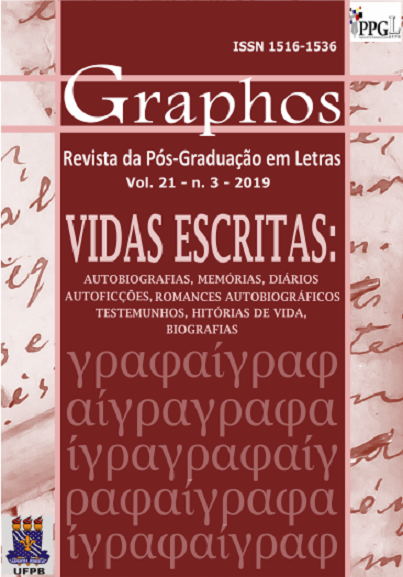Vol. 21 No. 3 (2019): Writen lives: autobiografies, memories, diaries, autofictions, autobiographical novels, testimonials, life histories and biographies

From the 1960s on, specially from 1970, theoretical and critical studies of autobiographies have advanced in western literatures and has also been valued by readers and authors of this genre. Until then it had been underestimated (except for the classics), receiving only historical and testimonial value. The lack of a specific definition and the lack of literary acknowledgment made autobiography into a “miscellaneous”, which used to put autobiographies together with any novel, poem or drama that had, or seemed to have, autobiographical content. Fortunately, this changed in the last third of the century, when, in the Anglo-Saxon context and specially in France, the study of autobiographies received theoretical and critical attention. After works by James Olney, John Paul Eakin, Georges Gusdorf and Philippe Lejeune, among others, claims of literality started to be made for the genre, raising it to the same level as other fictional genres. Efforts were directed to the specificity of autobiographies, making it unique and different in relation to other literary registers and having Philippe Lejeune and his “autobiographic pact” as a decisive contribution. This dossier gathered researches of “self writing” in the field of (auto)biographical literature and has contributions from researchers from different universities.
This issue was supported by the Research Support Foundation (FAPESQ), Grant Term No. 045/2019.







